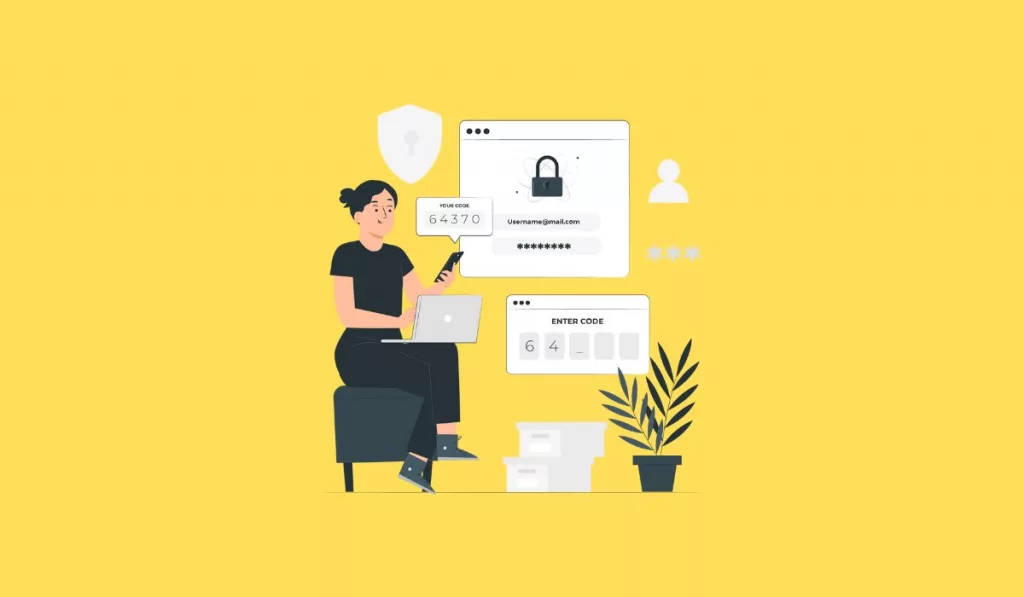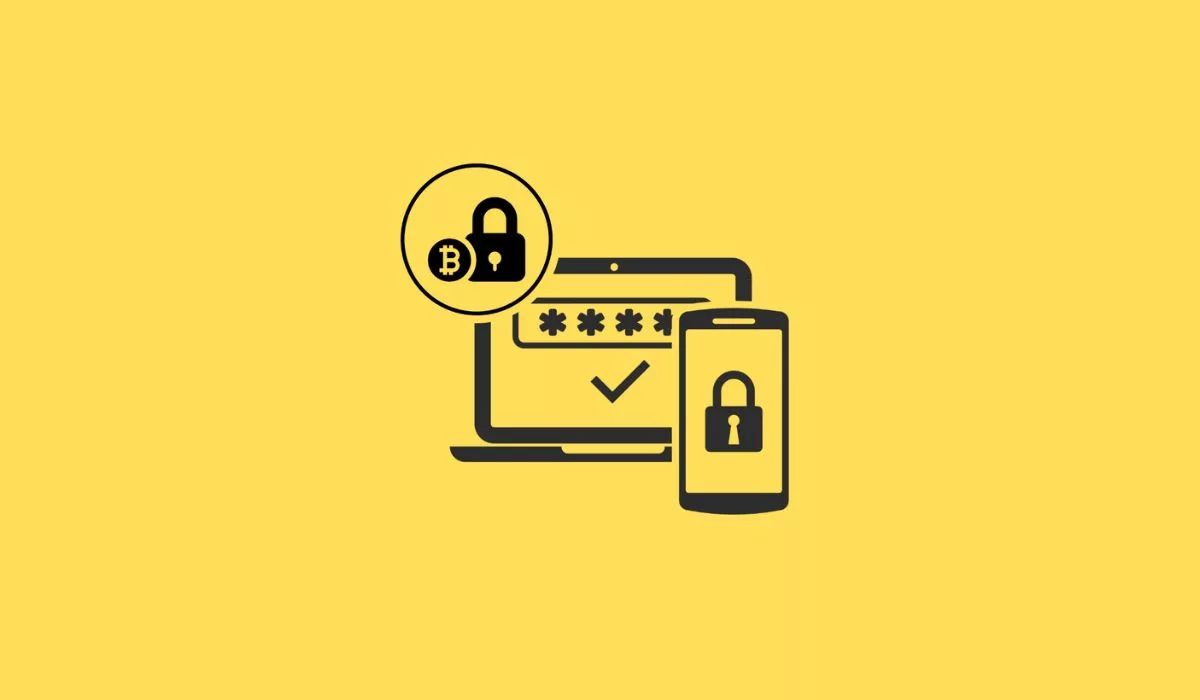In the dynamic world of decentralized finance, with Bitcoin leading the charge, the surge in opportunities is matched by the urgent need for robust security mechanisms. This pressing requirement underscores the significance of adopting advanced security solutions such as crypto point of sale systems, which are not just pivotal for enabling secure transactions but also underscore the criticality of Two-Factor Authentication (2FA) in bolstering the security framework for Bitcoin transactions and wallets. As we explore the multifaceted role of 2FA, it becomes clear that its implementation is not just an added layer of security but a fundamental criterion in selecting a crypto point of sale system, ensuring the integrity and protection of digital assets.
The vast digital currency landscape, historically reliant on simple passwords, is increasingly vulnerable to sophisticated threats. Against this backdrop, Two-Factor Authentication (2FA) stands as a beacon of enhanced security, incorporating an additional safeguard that significantly transcends traditional security measures. By integrating something the user knows (like a password), something the user has (such as a mobile device or token), and sometimes something the user is (biometrics), 2FA introduces a comprehensive security solution that effectively counters unauthorized access attempts.
- The Importance of Two-Factor Authentication
- Evaluating Bitcoin Vulnerabilities
- The Mechanisms Behind Two-Factor Authentication
- The Critical Role of Two-Factor Authentication in Success Stories
- Addressing Challenges and Critiques of Two-Factor Authentication
- Best Practices for Implementing Two-Factor Authentication in Crypto Point of Sale Systems
The Importance of Two-Factor Authentication

The core of 2FA’s effectiveness lies in its layered security approach, augmenting the basic password mechanism with a secondary verification factor. This method, whether through verification codes on mobile devices or cutting-edge biometric verification, intertwines enhanced security features with unique user identifiers, creating a more personalized and impenetrable security barrier. This dual-layered defense is especially crucial for crypto point-of-sale systems, where the secure processing of transactions is paramount.
Also read: The Importance of Multi-factor Authentication in an eCommerce Application
Evaluating Bitcoin Vulnerabilities
Bitcoin’s innovative approach to decentralized finance does not exempt it from the plethora of digital threats that permeate the online world. The sector is besieged by risks ranging from phishing schemes to advanced malware, targeting vulnerabilities in the system. These persistent threats underscore the indispensable need for ironclad security measures, particularly for crypto point-of-sale systems, to thwart the compromise of exchanges and wallets effectively.
The Mechanisms Behind Two-Factor Authentication

Two-factor authentication (2FA) makes Bitcoin transactions more secure by adding an extra layer of security in step to the login process. Here’s how it works in simple terms:
- You enter your password. This is the first step, where you use your regular password. It’s something you know.
- You provide a second proof. After the password, you need to prove it’s really you by providing something else. This could be a code from your phone, a message, or a special hardware token.
- Codes come from devices. If you’re using a device-generated code or a text message, your phone is involved. It generates a code or receives a text that you must enter.
- Hardware tokens are physical. Sometimes, you might use a physical device, like a small key that you plug into your computer. This is another way to prove it’s you.
- This stops hackers. Even if someone knows your password, they can’t get in without the second proof. This makes your Bitcoin transactions much safer.
- It’s not just about passwords. 2FA doesn’t rely only on passwords, which can be guessed or stolen. It adds another security layer, making it much harder for someone to access your account.
- Good for crypto sales. For buying and selling Bitcoin, 2FA ensures that the transaction is secure. This is very important for keeping your cryptocurrencies safe.
- It’s a must-have. Using 2FA is becoming a basic security step for anyone dealing with Bitcoin, because it greatly reduces the risk of theft or unauthorized access.
After you know the mechanism you might be interested in knowing What is Bitcoin Fintechzoom.
The Critical Role of Two-Factor Authentication in Success Stories
Two-factor authentication (2FA) has proven its worth in numerous success stories, playing a critical role in blocking unauthorized access attempts and enhancing digital security. Through deterring phishing attacks and preventing unauthorized transactions, 2FA has shown itself to be an indispensable tool in protecting digital currencies. Its effectiveness is especially evident in crypto point of sale systems, where it acts as a robust barrier against external threats, securing digital transactions from potential breaches.
Moreover, for individuals looking to invest in cryptocurrency, the importance of security cannot be overstated. 2FA becomes a crucial consideration in this context, ensuring that investment accounts are doubly protected.
Addressing Challenges and Critiques of Two-Factor Authentication
Two-factor authentication (2FA), despite its substantial benefits in enhancing security, is not without its challenges and critiques. One of the primary concerns is the inconvenience it can pose to users, potentially adding extra steps to their login processes. Additionally, there are vulnerabilities such as the loss of the device used for 2FA or the interception of SMS codes, which could compromise security. These issues highlight the need for ongoing improvements in 2FA technologies. The goal is to find innovative solutions that can offer a better balance between heightened security and user convenience, especially for critical applications like crypto point of sale systems where secure and user-friendly transactions are paramount.
In the context of cryptocurrency, addressing these 2FA challenges is also essential for those exploring the best ways to earn money with cryptocurrency. Enhanced security measures, including advanced 2FA methods, can protect investors from unauthorized access and potential losses, making their investment journey safer. As the cryptocurrency market continues to evolve, so too must the security technologies that safeguard it, ensuring that investors can engage in transactions with confidence and explore various avenues to earn money with cryptocurrency securely.
Best Practices for Implementing Two-Factor Authentication in Crypto Point of Sale Systems
Adopting a vigilant approach towards integrating cryptocurrencies into business operations necessitates prioritizing 2FA as a core component of the security infrastructure. For crypto point of sale systems, choosing robust 2FA methods, such as authentication apps or hardware tokens, is essential in enhancing security measures. Additionally, cryptocurrency platforms must play a pivotal role in facilitating security by implementing stringent 2FA protocols and educating users about its importance.
Navigating the future of digital finance, with a focus on secure and efficient transaction processing, underscores the indispensability of Two-Factor Authentication as a foundational element in crypto point of sale systems. This commitment to rigorous 2FA implementation marks a step towards a secure future, resilient to the continuously evolving threats in the digital landscape. Through proactive security practices and a dedicated commitment to safeguarding digital assets, the path towards a secure and flourishing digital finance ecosystem becomes clearer.










Leave a Reply